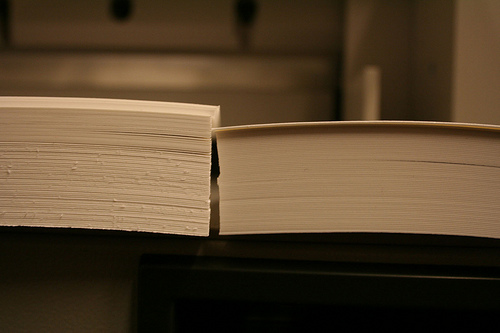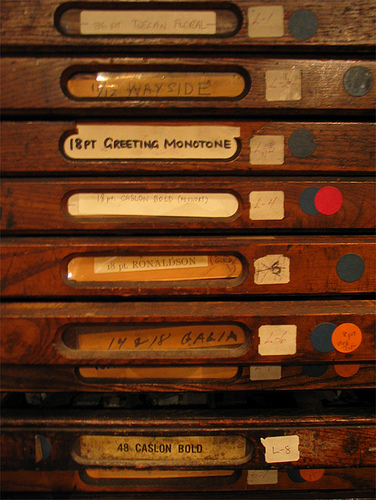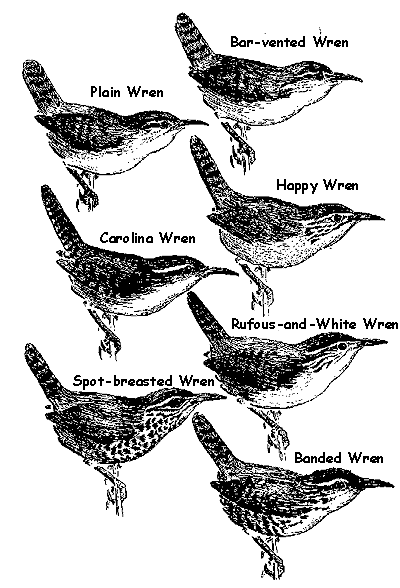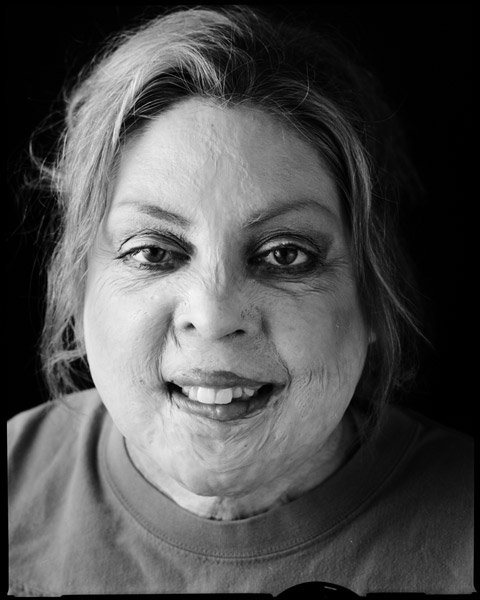In a world where the quantity of secondary (mediated) observation and interpretation threatens to drown us, the imperative to renew and expand our observation skills (in all forms) is at least as important as the need to sift and make sense of the flood of mediated information. Improved skills of observation and thoughtful interaction are also more likely sources of creative solutions than brave conquests in new fields of specialised knowledge by the armies of science and technology.
The icon for this principle is a person as a tree, emphasising ourselves in nature and transformed by it.
— David Holmgren, co-originator of the permaculture concept, in Permaculture: Principles and Pathways Beyond Sustainability
Tag: beauty
Elephant self-esteem
Haircuts by children, my vanity.

Galen is getting his hair cut by a ten year old in a few weeks, as part of a performance about the segregation and disenfranchisement of children in society. An opportunity to trust the skill and style choices of a kid. I think this is a great idea for a performance and I’ve been telling a lot of people about it. (More explanation if you want it.)
I am not getting my hair cut. It turns out I am still terrified of bad hair cuts. I’m not terrified of no make up, belly rolls, showing cellulite in public, body hair, laundry day outfits, etc. But hair cuts, yes. I’m fascinated.
I had unflattering hair cuts that didn’t express my soul essence for about 13 years in a row, between my mum deciding I looked cute with a mushroom cut in grade 1, through a lot of small town $7 haircuts, through getting my friends to chop off my hair in grade 11 (somewhat better), through shaving it off in grade 12 (worse again), growing that out a bit (better again), and deciding to go to my grandmother’s hair stylist when I moved to Victoria. That was how much I knew about haircuts when I was 18. I thought the neighbourhood wash-n-set was the place to go for the punk rock haircut of my dreams. Granny’s stylist did alright as long as I kept it really short. It took me until I was about 20 to realize there were people who knew how to create a haircut on purpose, rather than just cutting to the approximate length and hoping for the best. My hair trauma is not helped by the coincidence that I was a giant nerd during pretty much the exact same time as the ugly haircuts. That photo shows me five minutes after having my hair cut and styled at some $10 Hair Hut type place at the mall in my hometown. It also shows me about 1 month into a three year stretch of on-and-off suicidal depression. COINCIDENCE? I’m joking about 50%. I could have used a hair mentor.
So. This haircuts by children performance may have cured me of my inner judgments about feminist environmentalists who won’t talk about reusable menstrual products. The shoe is on the other foot now. And even making that connection might help me sort out my hair terror. I had my share of menstrual shame and angst as a teenager. Maybe if I think about how I rearranged that, I’ll be able to rearrange my hair anxiety into something more in line with the rest of my values.
In the meantime I am telling a lot of people about these haircuts by children. So far I’ve prompted I think three people to set up appointments, one of them a stranger.
“Because love always causes a descent into the Death nature…”
These are quotes from Women Who Run With The Wolves that have been sitting here with no context, unpublished, since February 2009. I think I was interested in talking about love beyond infatuation, love as an action or alliance instead of a feeling. I still am.
I haven’t posted anything here, or done much writing at all, for many months. Spitting out some old drafts seems like a good re-entry. I seem to do this every now and then. Maybe I can promote it as a personal feature instead of a bug.
Anyway. Old quotes.
A part of every [person] resists knowing that in all love relationships Death must have her share. We pretend we can love without our illusions about love dying, pretend we can go on without our superficial expectations dying, pretend we can progress and that our favorite flushes and rushes will never die. But in love, psychically, everything becomes picked apart….
What dies? Illusion dies, expectations die, greed for having it all, for wanting all to be beautiful only, all this dies. Because love always causes a descent into Death nature, we can see why it takes abundant self-power and soulfulness to make that commitment.
More…
In wise stories, love is seldom a romantic tryst between two lovers. For instance, some stories from the circumpolar regions describe the union of two beings whose strength together enables one or both to enter into communication with the soul world and to participate in fate as a dance with life and death.
And more.
It is true that within a single love relationship there are many endings. Yet, somehow and somewhere in the delicate layers of the being that is created when two people love one another, there is both a heart and breath. While one side of the heart empties, the other fills. When one breath runs out, another begins.
“The condition of coming to terms with what you consider ugly.”
I have often wished that the function of the beauty industry was to help people get better at beholding beauty. It could be like art appreciation classes that show you what can be appreciated about art you didn’t like looking at before. That might even be the root of my complicated gut reactions about body image activism performances like burlesque. Does it help me see beauty in a new place, or does it just involve new people winning at the same old beauty contests? I think my guts know I’m looking to broaden my beholding skills, not get caught up in competitions.
So I liked this comment about aesthetics and perception, for focussing on “coming to terms with what you consider ugly,” and on ways to help people do that.
Beauty can be coaxed out of ugliness. Wabi-sabi is ambivalent about separating beauty from non-beauty or ugliness. The beauty of wabi-sabi is, in one respect, the condition of coming to terms with what you consider ugly. Wabi-sabi suggests that beauty is a dynamic event that occurs between you and something else. Beauty can spontaneously occur at any moment given the proper circumstances, context, or point of view. Beauty is thus an altered state of consciousness, an extraordinary moment of poetry and grace.
… It is almost as if the pioneers of wabi-sabi intentionally looked for such examples of the conventionally not-beautiful— homely but not excessively grotesque— and created challenging situations where they would be transformed into their opposite.
— Leonard Koren in Wabi Sabi for Artists, Designers, Poets and Philosophers
Reading this brought up a big sensory memory of what that feels like— I get pretty thrilled and spaced out by perception shifts. I heard an NLP trainer say that it’s common to get spaced out by big new ideas, that spacing out is the physical sensation of a bunch of your brain synapses reorganizing at once. I don’t know if that’s true, but the idea delighted me.
The least ridiculous monkey dancer I can even imagine.

(Excerpt from the Suo Sarumawashi Association’s official introduction)
Sarumawashi, literally “monkey dancing” evolved over a 1000-year history in Japan. Ancient Japanese chronicles refer to it as a form of religious ritual designed to protect the horses of warriors. It later developed into a popular form of festival entertainment, and was performed all over Japan from temples to imperial courts. Today, Sarumawashi is ranked alongside Noh and Kabuki as one of the oldest and most traditional of Japan’s performing arts. It features acrobatic stunts and comedic skits performed by highly trained macaque monkeys.
I am loving this painting by Sunaura Taylor.

Also, I have a huge crush on winter trees lately. (Always?)
I am surprised and delighted by how androgynous I find this photo.
Repetition with variation. Magic.
Alternatives to handsome.
Sarah H commented about handsomeness and masculinity.
I find it really useful to consider ideas of handsomeness in relation to concepts of masculinity— I can see where my own notions of handsomeness are based in someone (of any gender) being visibly self-controlled, unemotional and hardened. I wonder how we can reclaim words like this— like how do we compliment our loved ones on looking cute, without using words that reinforce these concepts of masculinity? I have tended to use the word handsome, but now it doesn’t seem appropriate.
I am interested in this too. I hadn’t considered the word handsome before, but I use it a lot (also to describe a person of any gender). After some reflection, I think for me it is a replacement for saying something more personal and honest. I’m making a judgment about beauty and gender instead of attending to my feelings and needs. There is an idea I like in non-violent communication, that making judgments reinforces hierarchy and external authority. From Nonviolent Communication: A Language of Life:
Most of us grew up speaking a language that encourages us to label, compare, demand, and pronounce judgments rather than to be aware of what we are feeling and needing. …
Life-alienating communication both stems from and supports hierarchical or domination societies. Where large populations are controlled by a small number of individuals for their own benefit, it would be to the interest of kings, czars, nobles, etc. that the masses be educated in a way that renders them slave-like in mentality. The language of wrongness, “should” and “have to” is perfectly suited for this purpose: the more people are trained to think in terms of moralistic judgments that imply wrongness and badness, the more they are being trained to look outside themselves— to outside authorities— for the definition of what constitutes right, wrong, good and bad. When we are in contact with our feelings and needs, we humans no longer make good slaves and underlings.
To work for anarchist/non-hierarchical relationships, I’ve been practicing not judging things as “masculine” or “feminine” and instead just saying what they are and how I feel about them. E.g., If I let go of describing a boy or man as effeminate, I can usually find more accurate, specific observations. Maybe he’s caring and kind, and likes to wear bright colours. And maybe I feel happy about that because I value kindness and diverse clothing options. I forget this all the time, but when I remember to get specific I like the way it makes me more aware of both the person and myself. I also like that it goes beyond resisting within binary gender and gets outside of gender altogether. Instead of questioning who can have feminine qualities, it is a way of questioning why we call some things feminine at all. I think that celebrating a man or boy for his feminine qualities still reinforces that passive, traumatized personalities are called feminine while aggressive, traumatized personalities are called masculine.
I’m thinking I could replace “handsome” the same way, with concrete observations and personal feelings. On top of letting go of judgments about gender (anyone can have a strong jaw or dark eyebrows), it would skip judgments about who looks more or less beautiful. Previously I’ve tried celebrating everyone as beautiful “in their own way” but I find it works the same way as celebrating genderblurred masculine and feminine qualities. It still reinforces the idea that I can judge who is beautiful or ugly and that it matters. I’d rather find ways to take responsibility for what I see and how I feel about it.
That has me wondering what I am trying to communicate when I tell someone they look handsome. I like to look at them? That is still very vague. I think they have social power because they fit a currently fashionable ideal look? I don’t want to play that game. When I look at their nose I feel hot and bothered? That is more what I’m aiming for. I think I’m using compliments as a substitute for conversations about desire and sensual appreciation. Wow. I would way rather have the desire/appreciation conversation.
I’m going to try eliminating handsome from my vocabulary for a few days, to find out what else I can talk about. I’m not sold on permanently eliminating words that describe judgmental categories because I also use them to talk about politics and the categories themselves, but a temporary ban seems like a good experiment in awareness.
More ideas?
Trees, night.
Cut paper, one clean edge and one rough, crafty knowledge.
I guess the cut is not the same on each side of a guillotine blade, because it is bevelled on one side and flat on the other. I like glimpses of the details of other people’s areas of expertise.
Names for typefaces
Greeting Monotone is no Godbold but I’ll take it. I fetishize type cases too much.
Look good naked, bring your own analysis, a lot of video links.
A bloggy friend of Erin’s posted about a TV show called How To Look Good Naked. I don’t have cable, and I didn’t know anything about this show. This blogger, Sarah, said the show basically relied on body image coaching to help women like their nude bodies, with no weight loss or surgery suggestions at all. I found this improbably thrilling news regarding a reality makeover show, so I looked it up on YouTube. This is from the American version (the original is British).
They just pointed out that plastic surgery doesn’t work? On TV? And they used their feelings to decide how to solve their personal distress? Yay hooray! The clips I found raise a ton problems for me, but wow, I am really happy to see this conversation happening on a mainstream makeover show.
Problems/boring parts:
- That blond mom clearly spends a lot of time grooming and performing “being pretty.”
- The show stars a man as the expert despite being about women’s body image.
- It’s safe to have this man see you in your underwear because he’s gay, but I don’t see anyone pointing out how that makes straight men’s expected behaviour quite obviously problematic. (Also in that clip, host Carsen casually equates strippers and low-class names, managing to bash both at once. There are other ways to make that joke, sir.)
- It focusses on a lot of external validation (mirrors, man host’s perspective, other people’s compliments).
- The show values looking conventionally femme and ‘sexy’ over feeling comfortable (external validation again).
- They have a half-assed acceptance of fat (don’t hide your fat… because that will make you look fatter).
- It demonstrates the conventionally feminine ambigious ‘no’ (giggle giggle smile) and seems to believe that coerced nudity is ok if one person really thinks it’s for the best.
- Obviously the producers just realized that “real beauty” will attract a valuable target demographic (thanks for that, Dove).
- Based only on these clips, they don’t seem to point out that your body has any endearing qualities besides the way it looks.
- The host looks like he’s had some work done himself.
And yet, I am still definitely pleased to see a rounded woman’s butt cellulite on screen in a positive context, hear someone make the basic point that clothes need to fit your body and not vice versa, and even see men touching each other fairly comfortably.
This is a very narrow discussion of body image, but it is at least in a direction that I value: unpacking all the crap that people said you should do and deciding for yourself. (My body and I are totally bff almost all the time anyway, so I’m not disappointed about the lack of new ground.)
It’s quite the comment on the state of TV that eliminating weight loss and surgery without discussing anything else is cause for celebration, but maybe these baby steps will make some room for a similar show that adds a couple of elements, and then a couple more. No weight loss, no surgery, and no dissing fat. Or getting to know your body without looking at it. Queer eye for the straight girl, finally, or a show where women come up with ways to enjoy their bodies without a host/star/authority at all. I dream.
7 wrens, sets of sets
I was thinking about sets of sets when I came across this set of similar wrens, discussing the collections of identifying marks that make up a distinguishable bird species.
The same site has a lovely little discussion of preparing the mind to see birds.
Experts say that when we lose something, before we begin our search to find the lost thing we should picture the object in our minds. This kind of “visualization” causes the brain to do something wonderful. On the one hand, it appears to filter out many unnecessary sightings but, on the other, if something even remotely resembling the lost object comes into view, the mind seems to “jump” at it.
Power of pattern matching.
Sets of sets, letters with warping

Repetition with variation along two dimensions: different Rs, warped to different degrees.
Curling, graininess suitably expressing surreality.

I went curling after hours at a rink owned by some friends of my cousin, out near Sidney.
- It was surprisingly fun, in the way that bocci, billiards and croquet are fun. Minimally-confrontational exercises in physics.
- So far I’ve never once been a fan of flattening large areas of land (parking lots, malls, golf courses…), especially land where I understand something about it having been colonized and occupied. It’s extra absurd when the flattening is done for sports. Non-cooperation overload.
- If I were actually into playing sports, I would set up a beautiful place to play for once. Rinks, fields, courses and courts are all so ugly! Wow. I wonder if spending time in artificially lit, flattened out, weirdly-proportioned, echo-y, energy sinkhole type spaces might be damaging on its own, even without the formalized competition and violence and the addiction to contrived adrenaline rushes. (Hi, I have fun ideas about sports!) Certainly people say that about office cubicles, that the ugliness is demoralizing, even without the bureaucratic hierarchy crap.
- And, curling was really fun. Pushing heavy things across ice with measurement marks is basically sensory play. Balance, momentum, angles, stretching, muscles. I bet curling kink parties would be fun.
Monster love, my favourite.
a skinny older man body
When I saw the Century Project (a man took nude photos of women from ages 0-100), my first thought was to wonder whether anybody was making a similar collection of naked men. I think there is more of a lack of images of naked men overall. So I collected this one a few months ago, and that’s as far as I got.
Armpit appreciation moment.
To go with the armpit-appreciation photo I posted before… I seem to be collecting these a little bit.
Mastectomy scars, many breasts
This topless group portrait including one woman with double mastectomy scars is strangely sweet. They look like they’re having a good time, with their huge pants from 1996 and their various breast shapes.
Eyes, loops, symmetry, quote
Burn scars, perception, beauty
In 2001 I met a burn survivor who allowed me to photograph her. She told me that she wanted to be photographed so that people could stare at her without feeling embarrassed. It was such an extraordinary experience that a few months later I flew to a burn conference and set up a makeshift studio in a hotel room, and asked people to let me know if they would like their portraits made. I was astonished at how many people did. What I learned from this extraordinary experience was that every burn survivor has a tale of courage to tell, and that the burns have their own eerie beauty. I also learned that after a few hours it becomes very difficult to see the burns anymore. When I returned and developed the photographs, I had to keep asking my wife “does this person look burned to you?”, because they all looked quite normal to me. My only regret is that I didn’t continue with this project longer than I did, but life intervened.
I love love love the possibility of not being able to tell who is scarred and who isn’t. Eye of the beholder.












